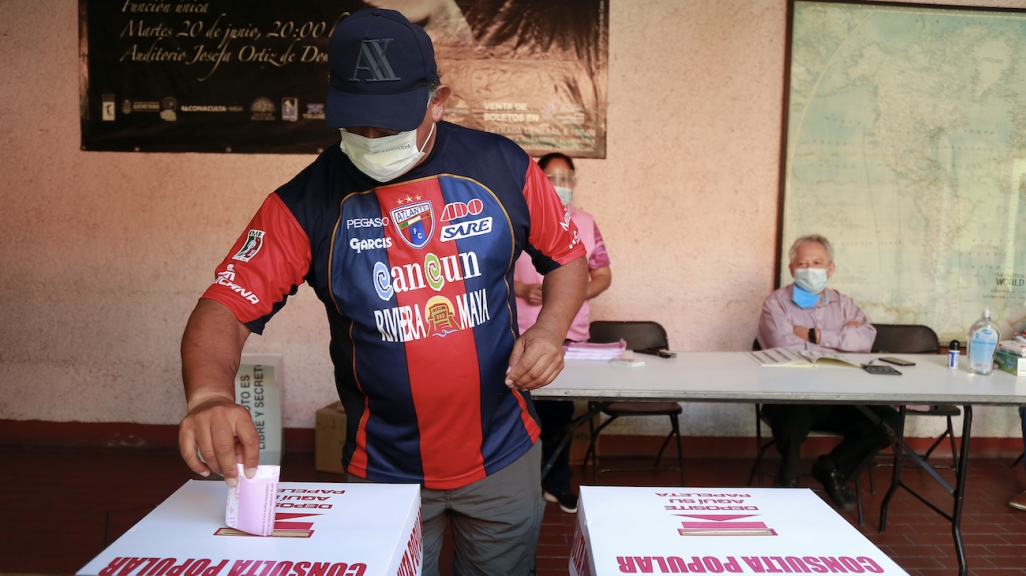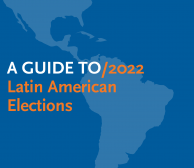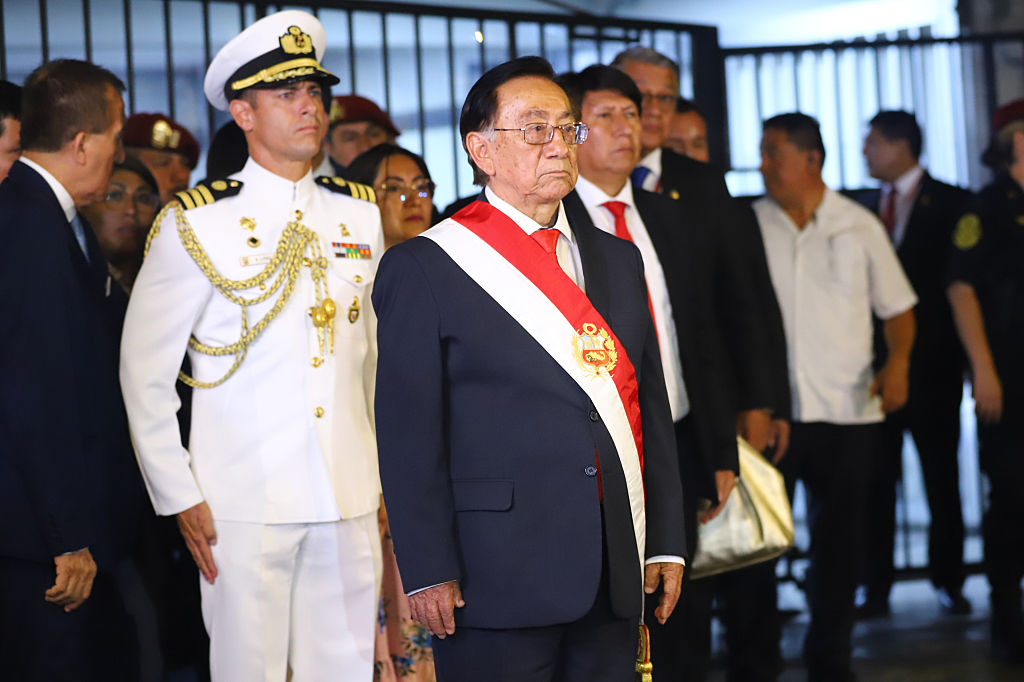LatAm in Focus: Why Is Mexico Holding a Presidential Recall Vote?
LatAm in Focus: Why Is Mexico Holding a Presidential Recall Vote?
By
Carin Zissis
All signs point to Andrés Manuel López Obrador staying in power after the April 10 referendum on his mandate. So why hold it? Gatopardo’s Fernanda Caso explains the debate over the recall.
Approval Tracker: Mexico's President AMLO
See Andrés Manuel López Obrador’s approval levels at the end of his six-year term.
Guide to 2022 Latin American Elections
AS/COA covers this year’s votes in the Americas, from presidential elections to referendums.









